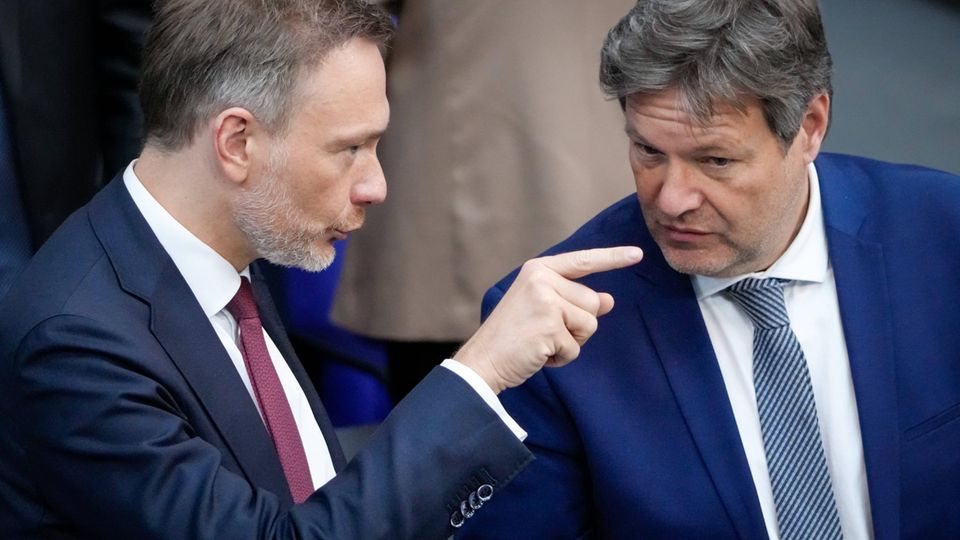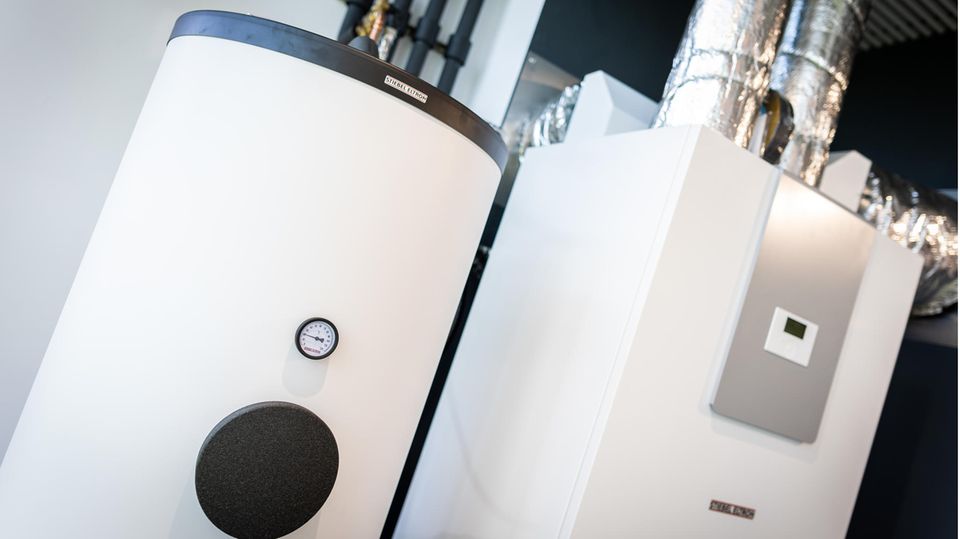Final hearing in the Bundestag
Heating Act: Almost all experts like the final version – but many questions remain unanswered
The heating law is to be passed in the Bundestag this week
© AFP
In the last few meters, experts were allowed to dismantle the planned heating law in the Bundestag. How did the session go?
By Nadine Oberhuber
Anyone who had expected heated discussions and outrage was disappointed: the final hearing in the Energy Committee of the Bundestag on the planned heating law was fairly calm, very factual and was even marked by a surprising amount of praise. (You can read more about this in our news blog from the hearing) The current version of the Building Energy Act (GEG) was well received by almost all experts – regardless of whether they were in the energy industry or housing companies, tenants’ and landlords’ associations, consumer protection groups, the heating industry or municipal planning associations: many quarters attested the latest changes to “very good improvements”, as you could see “a lot of light”.
Above all, the anticipated municipal heat planning, which should exist before the conversion obligation for homeowners takes effect, received a lot of approval – even from the municipalities, which are now pushing this planning at full speed until 2026 (in the case of smaller municipalities) or 2028 (in the case of large cities). have to afford. However, the hearing was not without criticism.
Almost all the associations represented were bothered by the legal procedure and the tight deadlines. The time between the first drafts and the planned vote, which was originally supposed to take place this week (but will probably be postponed now), was far too short – especially when you consider how many details the law is about and how many stakeholders and experts you have to coordinate with in order to get solid results. The law should be passed before the summer break.
When will the rules of the heating law finally be fixed?
Almost every second expert complained about the “massive uncertainty” that currently prevails among citizens, those willing to convert and also experts – caused on the one hand by the fact that all property owners are acutely threatened with major modernization measures, but so far there have been no details on permitted technologies or reliable information on the subsidy rates heating exchangers would have to expect. Under such circumstances, however, hardly any private landlords and certainly no housing construction companies are currently converting their properties, complained above all Axel Gedaschko from the real estate association BID and Kai Warnecke from the Haus und Grund owners’ association.
The general manager of the Federal Association of the Heating Industry, Markus Staudt, addressed the “medially messed up communication” directly. But it was not only the heating industry that criticized the fact that this had led to great “attentism”, to a great deal of waiting on the market. It is already making itself felt in the sales figures for the industry: In the first quarter of 2023, only 7,000 to 9,000 orders for heat pumps were placed – last year, on the other hand, around 230,000 units were sold on an annual basis.
However, the target of 500,000 installed heat pumps for 2024 will certainly not be achieved, confirmed Managing Director Martin Sabel from the heat pump association BWP. Instead, many consumers are currently quickly installing conventional gas heating, observes the heating association. In the near future, this technology in particular will be accompanied by “completely incalculable price increases, the amount of which cannot yet be foreseen,” warned Jutta Gurkmann, head of the Federal Consumer Association VZBV.
One of the main questions in the discussion was: What is the risk for homeowners who install a gas heating system now or after 2024 that is biogas or hydrogen-ready, but whose municipality or supplier cannot then supply biogas or hydrogen? Would homeowners have to rip out these systems again? Even the experts were not unanimous on this point. Economics professor Fritz Söllner from the TU Ilmenau was convinced: “A homeowner is only on the safe side with a heat pump. With all other technologies, there is a risk in these cases that he will have to tear something out.” Real estate association representative Axel Gedaschko contradicted this: “No, the gas heating does not have to be removed. But it usually doesn’t last that long anyway.”
Who pays for it – tenant or landlord?
By far the most common question asked by all party representatives went in a different direction: What does the GEG mean for tenants and landlords? Above all, the quota for the possible modernization levy and the cap on a possible rent increase were the subject of discussion. The draft law currently provides that the rent may later be increased by a maximum of 50 cents per square meter if the landlord wants to pass on the heating costs to the tenants. Tenant associations find this too generous – especially for large apartments. And they also welcome the hardship clause, which allows tenants to object to the conversion and the allocation of costs.
The homeowners’ and housing associations, on the other hand, remind tenants that a new heating system would also result in savings in ancillary costs. In addition, the replacement of the heating system must also be economical for the landlord – and it is incomprehensible why the landlords bear the sole obligation to convert, while the tenants can object to it. Moreover, replacing the heating system is not enough, because the building envelope usually has to be insulated or improved. But that cannot be financed with the cap of 50 cents. At least not without lavish state support, the housing associations appealed urgently.
In addition, there was still the question of when the new subsidy rates will apply. The state could cover up to 70 percent of the heating costs if a homeowner collects all the grants and bonuses. Without the bonus for lower-income earners, it is 50 percent. It remained unclear at the hearing whether the 50 percent of the total purchase price will be paid in full to high earners – or whether there should be an upper limit for the purchase costs. And then only 50 percent of it will be funded.
When will the promotion come?
Now the future subsidies are more lavish than the previous ones, and that is exactly the problem: because these subsidy rates will only apply from 2024, when the law is to come into force, then the market for heating systems with renewable energies will probably remain completely idle this year. Then nobody will convert now, when there will be higher state subsidies from 2024. Heating Association Managing Director Markus Staudt has a suggestion: everyone who is still converting in 2023 could be offered the opportunity to choose from 2024 whether they want to be funded under the old or new law.
After the hearing, it now remains to be seen which of the expert proposals will find its way into the text of the law. And when the Bundestag can finally vote on it. First of all, the constitutional court will decide on an emergency application from a CDU MP who wants to stop the law quickly.




